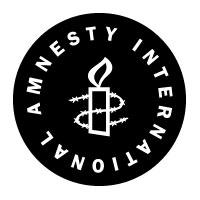UGANDA: Sexual abuse survivors in north denied justice - Amnesty

Amnesty International has accused Uganda's justice system of "tacitly condoning and protecting suspected perpetrators” of rape and other sexual abuses against women and girls in the north of the country.
"The horrific violence committed during the many years of conflict in northern Uganda continues to aggravate discrimination against women and girls in the area today," Godfrey Odongo, a Kampala-based researcher for the human rights organisation said on 30 November during the launch of its latest report, Uganda: Justice System Fails Victims of Sexual Abuse.
The report says sexual abuses against women are still commonplace despite calm returning to the region after two decades of a civil war that has killed thousands and displaced two million others.
"The situation remains grim, despite the recent cessation of hostilities," Odongo said.
According to Amnesty International, most sexual violence victims in northern Uganda do not report the crimes because they have lost hope in the justice system.
"Many are afraid to report rape and other forms of violence, not only because of intimidation, hostility and ridicule from the community, but also due to state inaction in ensuring redress,” Amnesty said.
The report added: "Testimonies by victims show a range of perpetrators including UPDF [national army] soldiers, law enforcement officers, local council leaders and civilian persons, spouses and relatives of female victims of violence.”
Army spokesman Maj Felix Kulaije said the military would investigate the charges in the report. He added that the army always acts "decisively" against any acts of excesses by its soldiers.
"Culture of impunity"
In August, the report says, Amnesty International researchers visited five districts - Gulu, Amuru, Kitgum, Pader and Lira - and spoke to scores of women, discovering a "culture of impunity" surrounding cases of rape and sexual violence, highlighting some involving local leaders.
In one such visit, Auma Jane, who was 11 years old when she fled from rebel captivity in 2001, ended up in an abusive relationship after a local leader in Pader District forced her to marry his son.
"Many women and girls in northern Uganda suffer sexual and gender-based violence committed by state actors, including official authorities and military officers, and non-state actors within the family and in the community,” Amnesty said.
Amnesty noted that the situation in the five districts warrants the immediate attention of the Ugandan government and the international community.
Often, the report added, there are no police officers to report cases of sexual violence to because police posts and stations were few and far between in the whole of northern Uganda. “Many times the police officers who are available to report to are not sensitive to the rights of victims in the context of the trauma of the violence,” the report noted.
The conflict in the north, which started between the government and the rebel Lord's Resistance Army (LRA) in 1988, has been characterised by sexual and gender-based violence against women and girls.
The UN Children's Fund (UNICEF) estimates that more than 32,000 children were abducted by the LRA during the war and used as child combatants and sex slaves.
 Back and Next - Back and Next
Back and Next - Back and Next See Also - See Also
See Also - See Also